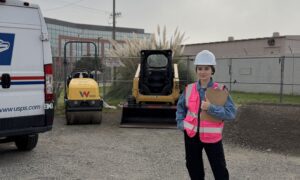The construction industry has continuously operated under tight timelines, complex contracts, and heavy regulatory pressure. Managing risk and ensuring contract compliance has traditionally been a slow, manual process prone to human error. But today, AI-powered platforms like Document Crunch are redefining how construction firms approach contract review, risk management, and compliance.
As the industry moves forward, technology is playing an increasingly vital role in making contract compliance faster, more innovative, and more consistent. In this article, we examine how AI is transforming the construction industry and shaping the future of contract management.
Understanding the Importance of Contract Compliance in Construction
In construction, contracts are the backbone of every project. They outline the rights, responsibilities, timelines, and financial terms for owners, contractors, subcontractors, and suppliers. A single missed clause or misunderstood obligation can lead to significant disputes, delays, cost overruns, or even litigation.
Contract compliance is crucial for maintaining project integrity, protecting business interests, and ensuring compliance with legal and regulatory requirements. However, traditional compliance processes often rely heavily on manual review, which can be time-consuming and inconsistent when applied to large volumes of documents. As project demands increase and contracts become more complex, these old methods are no longer enough.
How AI Is Revolutionizing Contract Review
Artificial intelligence is bringing a new level of efficiency and accuracy to contract review. AI-powered tools can quickly scan and analyze lengthy contracts, flagging key clauses, obligations, and potential risks that require attention.
Unlike manual review, AI systems are trained on thousands of real-world contracts, industry standards, and legal requirements. They can identify patterns, deviations, and missing elements far more rapidly and consistently than human reviewers. By automating the initial review process, AI enables legal and project teams to focus their expertise on the most critical areas, rather than being bogged down in paperwork.
In construction, where deadlines are tight and the risk of non-compliance is high, this speed and precision provide a significant competitive advantage.
Enhancing Risk Management Across Projects
AI contract compliance tools not only streamline document review but also strengthen overall risk management. Early detection of problematic clauses, inconsistent language, or regulatory gaps gives project teams the chance to resolve issues before they escalate.
For example, AI can flag unfavorable indemnity provisions, missing insurance requirements, ambiguous change order processes, or inconsistent terms for dispute resolution. Addressing these risks proactively during the contract negotiation phase helps prevent costly misunderstandings and litigation down the line.
By incorporating AI-driven compliance checks into every stage of the contract lifecycle, construction companies can build a more resilient risk management framework that protects projects from unforeseen legal and financial threats.
Supporting Standardization and Consistency
Consistency is critical for compliance. Different teams, regions, and projects can easily develop their contract habits and interpretations without centralized guidelines. Over time, this lack of standardization increases legal exposure and makes it harder to enforce company policies.
AI platforms help restore consistency in contract management by comparing documents against predefined playbooks, templates, and company standards. Deviations are automatically flagged for review, ensuring that contracts align with best practices and company-specific requirements.
This standardization is crucial for larger construction firms operating across multiple jurisdictions and managing hundreds of active projects simultaneously.
Improving Collaboration Between Legal and Project Teams
One traditional challenge in construction compliance is the communication gap between legal departments and field teams. Legal teams may lack real-time visibility into contract execution, while project managers and site supervisors may not fully understand the legal nuances buried in their agreements.
AI contract analysis tools can bridge this gap by providing clear, actionable summaries of contract requirements tailored for non-legal audiences. Automated insights help project managers understand key obligations related to safety regulations, payment schedules, change orders, and warranty terms without needing to interpret complex legal language.
Better collaboration between legal and project teams leads to smoother project execution, fewer compliance failures, and stronger working relationships across departments.
Preparing for a Data-Driven Future
The construction industry is steadily moving toward a more data-driven future. Contract data, project management systems, financial software, and compliance monitoring tools are increasingly being integrated to create a comprehensive digital ecosystem.
AI contract compliance aligns perfectly with this future by providing structured, searchable contract data that can be integrated with other project systems. Key obligations, deadlines, insurance certificates, and risk indicators can be automatically tracked, helping companies make smarter, faster decisions based on real-time information.
As technology adoption grows, companies that embrace AI for contract compliance will find themselves better positioned to manage complex projects, maintain profitability, and meet evolving regulatory demands.
Final Thoughts
The construction industry faces unique challenges in terms of contract compliance and risk management. Manual processes are no longer sufficient to keep pace with the volume, complexity, and stakes involved in today’s projects.
AI-powered platforms like Document Crunch are leading the way in transforming how construction firms approach contract review, risk detection, and compliance management. By adopting these tools, businesses are not only improving efficiency but also building stronger, safer projects backed by smarter contracts.
The future of construction contract compliance is faster, more consistent, and undeniably more intelligent—and the companies that adapt now will be the ones setting the new industry standard.































